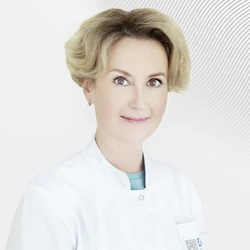Tells Polina Novikova,
endocrinologist, PhD
For reference: Hyperprolactinemia is a condition in which prolactin levels are elevated in the blood. Prolactin is secreted in the pituitary gland, a gland located in the very center of the brain, which is the most important or "controlling" endocrine gland of the body. Lactotrophic cells are located in the anterior lobe of the pituitary gland, and their activity is controlled by a substance called dopamine.
So, what happens in the body if the level of prolactin in the blood is really high?
In women, this leads to suppression of the production of hormones that control the menstrual cycle (LH and FSH), as a result, menstruation becomes irregular or stops completely. In addition, lactation may occur that is not related to childbirth.
In men, hyperprolactinemia causes a decrease in the concentration of male sex hormones, and can cause erectile dysfunction and decreased libido.

An increase in prolactin in children is extremely rare, and if this is a true increase in prolactin caused by a pituitary tumor, then the manifestations may be stunted growth and sexual development.
Hyperprolactinemia is quite common. Among the general population, the incidence of this disease is 0.4%, and among women with infertility - 9-17%. This problem is most often found in women aged 25-34, but there is reason to believe that this is due to the fact that it is at this age that manifestations of excess prolactin have symptoms in the form of menstrual irregularities and problems with pregnancy.
It should also be noted that prolactin in our body is different. Monomeric prolactin is active, and it is its increase that usually leads to consequences in the form of all of the above symptoms. Macroprolactin, which is a large prolactin molecule consisting of several "small" ones, is an inactive hormone. It has no effects, and in most cases, if there are no manifestations, it does not require treatment. Most laboratories currently use kits that make it possible to distinguish macroprolactin from monomeric, and then this is indicated by a separate paragraph in the analysis result.
How is the increase in prolactin expressed in numbers?

Different measurement units may be specified in different laboratories. The most "standard" units are honey / l, in terms of which prolactin should be no more than 400. The increase in the range of 1000 mEd/l is insignificant. From 1000 to 2000, it really starts to be alarming, and more than 5000 is the level that occurs in pituitary tumors. Prolactin is often found expressed in ng/ml, then its highest normal value is about 30.
Thus, if a moderately elevated prolactin was detected during the examination, then, first of all, the analysis should be repeated. If we are not talking about a significant increase (more than 1000 mEd /l), then the problem of hyperprolactinemia can be discussed only after 3 tests performed correctly in accordance with all the rules. A significant increase (more than 2000 mEd /l) in most cases requires an MRI scan of the brain. Again, the analysis must be carried out correctly.
The following causes often lead to a moderate increase in prolactin – less than 1000 mEd/l:
- pregnancy;
- the postpartum period (which can last about a year);
- breast stimulation (breast-feeding, injury, or intimate relationships);
- stress is physical (for example, active training on the eve of an analysis) or psychological (for young children, blood collection from a vein often becomes such stress by itself);
- food - after eating, the level of this hormone increases; prolactin levels in women strongly depend on the phase of the menstrual cycle, all of the above norms relate to the first phase, or rather to the period from the 2nd to the 7th day of the menstrual cycle; norms for other phases of the cycle, except for the first, prolactin does not exist, so its study in the middle or at the end of the cycle is not always correct in its essence. In men, the level of this hormone is stable and practically does not change.
A moderate and sometimes significant increase in prolactin may be the result of other diseases. These include:
- hypothyroidism (thyroid hormone deficiency);
- polycystic ovary syndrome in women;
- chronic severe kidney and liver diseases;
- celiac disease (possible).
Prolactin may increase when taking the following medications:
- dopamine receptor antagonists (antipsychotics, metoclopramide, domperidone, etc.), methyldopa, antidepressants (tricyclic, from the group of MAO inhibitors and serotonin reuptake), opiates;
- verapamil, without nitrate;
- omeprazole, some antiallergic drugs; sex hormones (contraceptives, testosterone preparations) and their antagonists.

An increase in prolactin can accompany various serious conditions – injuries, fractures, a condition after radiation, radiation or chemotherapy, after an attack of seizures, etc.
The rarest cause of prolactin elevation is pituitary tumor – prolactinoma. Small adenomas up to 1 cm in diameter are most common – about 90% of cases. Large ones are much rarer. In addition, any brain tumor that displaces the pituitary funnel – structurally it connects the pituitary gland and the hypothalamus – will lead to a significant increase in prolactin, since it is through the pituitary funnel that dopamine, a natural inhibitor of prolactin production, enters.
The main indications for determining prolactin levels are menstrual irregularities, infertility in both women and men, and lactorrhea (in women). There are many reasons for determining this hormone, but if they are not among the "main" ones listed above, it is better to consult an endocrinologist about the need and expediency of prolactin research.
Treatment of hyperprolactinemia should only be carried out in conjunction with an endocrinologist. Very often, a patient with elevated prolactin is monitored by two doctors at once, for example, a gynecologist and an endocrinologist. Not all cases of elevated prolactin, especially if it is a slight increase, require therapy.
Doctor's advice:
- If you accidentally have an increase in prolactin, then first you need to make sure that the test was passed correctly, then find out if it is repeated. In any case, with an increase in prolactin, it is better to consult with a general practitioner or an endocrinologist about whether any further examinations and actions are required.
- Prolactinomas are one of the rare tumors that can disappear with proper medication, and in a third of women, small prolactinomas can resolve on their own after giving birth or during menopause.
- You should never ignore an already detected prolactinoma. Even if it is not found after long–term treatment, further monitoring and verification of the fact that the disease has not returned is required.
Was this information helpful?
Questions and answers
Ask a Question






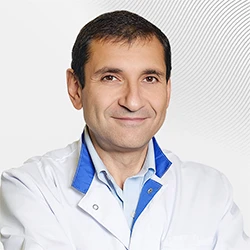

.webp)



.webp)
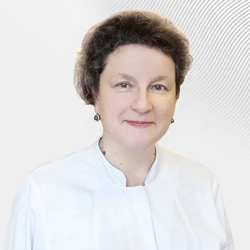
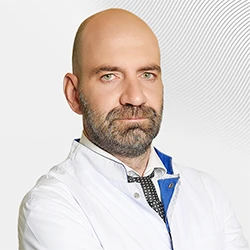
.webp)
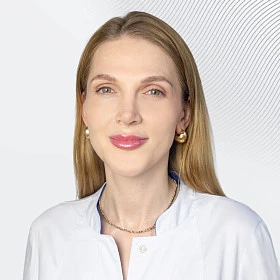
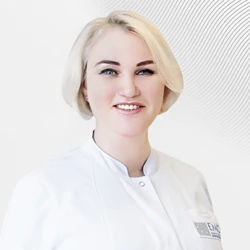
.webp)
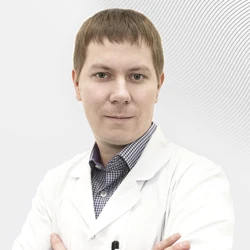
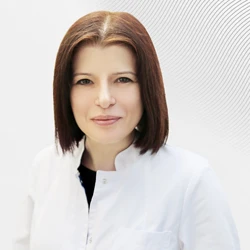
.webp)
.webp)
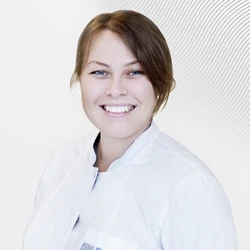
.webp)
